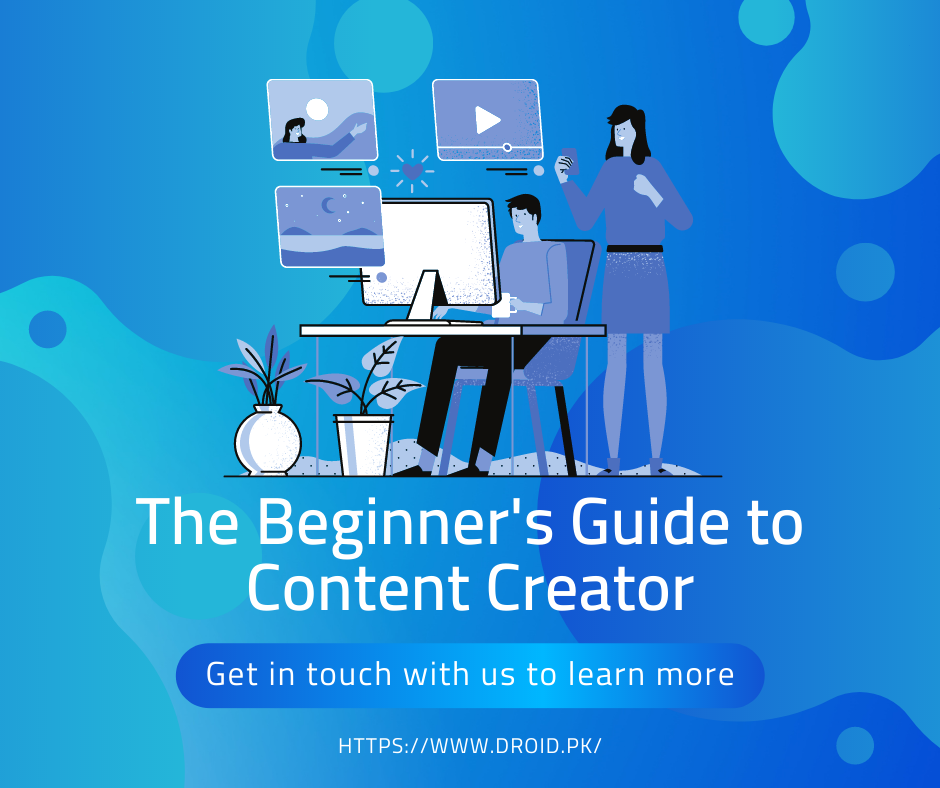
The Beginner's Guide to Content Marketing
Share
Introduction
In today's digital landscape, content marketing has become a fundamental strategy for businesses to engage their audience, build brand awareness, and drive valuable customer action. Whether you're a small business owner, a marketer, or an aspiring content creator, understanding the basics of content marketing is essential to achieve success in the online world. In this comprehensive beginner's guide, we will walk you through the key concepts, strategies, and best practices of content marketing, empowering you to create compelling content that resonates with your target audience.
Table of Contents
- What is Content Marketing?
- Understanding Your Target Audience
- Defining Your Content Marketing Goals
- Developing a Content Strategy
- Crafting Engaging and Valuable Content
- Optimizing Your Content for Search Engines
- Promoting Your Content
- Measuring and Analyzing Content Performance
- Building an Engaged Community
- Repurposing and Recycling Content
- Embracing Visual and Interactive Content
- Incorporating Storytelling into Your Content
- Leveraging Social Media for Content Distribution
- Collaborating with Influencers and Partners
- Harnessing the Power of SEO in Content Marketing
- Nurturing Customer Relationships through Email Marketing
- Creating a Content Calendar and Editorial Plan
- Staying Updated with Industry Trends
- Managing and Outsourcing Content Creation
- Overcoming Common Content Marketing Challenges
- Ethics and Integrity in Content Marketing
- Content Marketing Metrics and Key Performance Indicators (KPIs)
- Personal Branding through Content
- The Future of Content Marketing
- Conclusion
1. What is Content Marketing?
Content marketing involves creating and distributing valuable, relevant, and consistent content to attract and engage a specific target audience. It goes beyond traditional advertising by providing educational, entertaining, or informative content that aligns with the audience's interests and needs.
2. Understanding Your Target Audience
To create effective content, it's crucial to understand your target audience deeply. Conduct market research, develop buyer personas, and analyze their demographics, interests, challenges, and preferences. This knowledge will guide your content creation and ensure it resonates with your audience.
3. Defining Your Content Marketing Goals
Before diving into content creation, establish clear goals for your content marketing efforts. Are you aiming to increase brand awareness, generate leads, drive website traffic, or enhance customer loyalty? Defining your goals will shape your content strategy and help measure success.
4. Developing a Content Strategy
A well-defined content strategy acts as a roadmap for your content marketing efforts. Identify your target audience's pain points, determine the types of content that will address those needs, and outline a plan for content creation, distribution, and promotion.
5. Crafting Engaging and Valuable Content
Create content that captivates your audience and delivers value. Understand your audience's preferences and interests, and develop content that educates, entertains, inspires, or solves their problems. Use storytelling techniques, visual elements, and relevant examples to enhance engagement.
6. Optimizing Your Content for Search Engines
Optimizing your content for search engines is crucial for driving organic traffic to your website. Conduct keyword research to identify relevant keywords and incorporate them naturally into your content. Pay attention to on-page SEO factors such as meta tags, headings, and image alt text.
7. Promoting Your Content
Don't let your content go unnoticed. Develop a promotion plan to amplify its reach. Leverage social media platforms, email marketing, influencer collaborations, and paid advertising to increase visibility and drive engagement with your content.
8. Measuring and Analyzing Content Performance
Regularly analyze your content performance using web analytics tools. Track metrics such as website traffic, page views, time on page, bounce rate, and social shares. Use these insights to refine your content strategy and make data-driven decisions.
9. Building an Engaged Community
Engage with your audience by fostering a sense of community around your content. Encourage comments, respond to feedback, and actively participate in discussions. Building a loyal community will strengthen your brand and drive word-of-mouth promotion.
10. Repurposing and Recycling Content
Extend the lifespan of your content by repurposing it across different formats and platforms. Turn blog posts into videos, infographics, or podcasts. Create snippets for social media or compile content into ebooks or guides. This maximizes the reach and impact of your content.
11. Embracing Visual and Interactive Content
Visual and interactive content grabs attention and enhances engagement. Incorporate eye-catching visuals, such as images, videos, and infographics, into your content. Explore interactive elements like quizzes, polls, and calculators to create an immersive user experience.
12. Incorporating Storytelling into Your Content
Storytelling is a powerful tool for connecting with your audience on an emotional level. Weave compelling narratives into your content to evoke emotions, inspire action, and create memorable experiences for your audience.
13. Leveraging Social Media for Content Distribution
Social media platforms offer immense opportunities for content distribution. Identify the channels where your target audience is most active and tailor your content for each platform. Build a consistent presence, engage with your followers, and encourage social sharing.
14. Collaborating with Influencers and Partners
Collaborating with influencers and industry partners can expand your reach and credibility. Identify influencers who align with your brand values and target audience, and explore partnerships for content creation, co-marketing campaigns, or guest contributions.
15. Harnessing the Power of SEO in Content Marketing
Search engine optimization (SEO) plays a vital role in content marketing success. Research keywords, optimize your website's technical SEO, and create content that meets user intent. By aligning your content with SEO best practices, you can increase visibility and attract organic traffic.
16. Nurturing Customer Relationships through Email Marketing
Email marketing remains a powerful tool for nurturing customer relationships. Build an email list, segment your audience, and deliver personalized, valuable content straight to their inboxes. Use email marketing to drive engagement, promote new content, and nurture leads.
17. Creating a Content Calendar and Editorial Plan
Organize your content creation and distribution with a content calendar and editorial plan. Plan topics, assign responsibilities, set deadlines, and ensure a consistent flow of content. A well-structured plan keeps you organized and accountable.
18. Staying Updated with Industry Trends
The world of content marketing is ever-evolving. Stay updated with industry trends, new platforms, and emerging formats. Attend conferences, read industry blogs, and engage with thought leaders to stay ahead of the curve and adapt your strategy accordingly.
19. Managing and Outsourcing Content Creation
As your content marketing efforts grow, you may need to manage and outsource content creation. Develop clear guidelines, provide detailed briefs, and collaborate with freelancers or agencies to maintain consistent quality and meet your content goals.
20. Overcoming Common Content Marketing Challenges
Content marketing comes with its own set of challenges. Common hurdles include producing enough content, maintaining consistency, standing out in a crowded digital space, and measuring ROI. Developstrategies to overcome these challenges, such as repurposing content, creating an editorial calendar, focusing on unique value, and utilizing analytics tools to track and measure results.
21. Ethics and Integrity in Content Marketing
Maintaining ethics and integrity is crucial in content marketing. Be transparent about sponsored content or affiliate links, disclose any potential conflicts of interest, and ensure that your content provides accurate and reliable information. Build trust with your audience by delivering valuable content and being authentic in your communication.
22. Content Marketing Metrics and Key Performance Indicators (KPIs)
Identify the key metrics and KPIs that align with your content marketing goals. Track metrics such as website traffic, engagement rate, conversion rate, social shares, and customer retention. Regularly analyze these metrics to assess the effectiveness of your content and make data-driven optimizations.
23. Personal Branding through Content
Content marketing can also be a powerful tool for personal branding. Share your expertise, insights, and unique perspective through thought leadership content. Build your personal brand by consistently delivering valuable content and engaging with your audience.
24. The Future of Content Marketing
Content marketing is constantly evolving, and staying ahead of the curve is essential. Keep an eye on emerging trends such as artificial intelligence, voice search, and immersive technologies. Adapt your content strategy to embrace new platforms, formats, and technologies as they arise.
25. Conclusion
Content marketing is a dynamic and ever-growing discipline that holds immense potential for businesses and individuals alike. By following the principles and strategies outlined in this beginner's guide, you can create impactful content that resonates with your audience, drives engagement, and helps you achieve your marketing goals.
FAQs
Q: How long does it take to see results from content marketing? A: The timeline for seeing results from content marketing can vary depending on various factors such as your industry, target audience, and the consistency and quality of your content. It's important to approach content marketing as a long-term strategy and consistently deliver valuable content to build trust and engagement over time.
Q: Is it necessary to have a blog for content marketing? A: While having a blog can be a valuable asset for content marketing, it's not the only channel available. Content marketing can be done through various mediums such as social media, video platforms, podcasts, or email newsletters. Choose the channels that align with your target audience and goals.
Q: How do I measure the success of my content marketing efforts? A: Measuring the success of content marketing requires tracking relevant metrics and KPIs. Some common metrics include website traffic, engagement rate, conversion rate, social shares, and customer retention. Set clear goals and regularly analyze these metrics to assess the effectiveness of your content strategy.
Q: Should I create all the content myself, or can I outsource it? A: The decision to create content yourself or outsource it depends on your resources, expertise, and time availability. If you have the bandwidth and expertise, creating content in-house allows for greater control and authenticity. However, outsourcing content creation to professionals or agencies can provide fresh perspectives and save time.
Q: How can I make my content stand out in a crowded digital space? A: To make your content stand out, focus on providing unique value to your audience. Develop a distinct brand voice, deliver high-quality and well-researched content, and explore innovative formats or topics that resonate with your target audience. Engage with your audience, encourage feedback, and actively participate in relevant communities.
Q: Can content marketing work for small businesses with limited resources? A: Absolutely! Content marketing can be adapted to suit the resources and goals of small businesses. Start by understanding your target audience, focusing on niche topics, and leveraging cost-effective channels such as social media and email marketing. Consistently deliver valuable content that addresses your audience's needs, and engage with them to build relationships and drive results.

